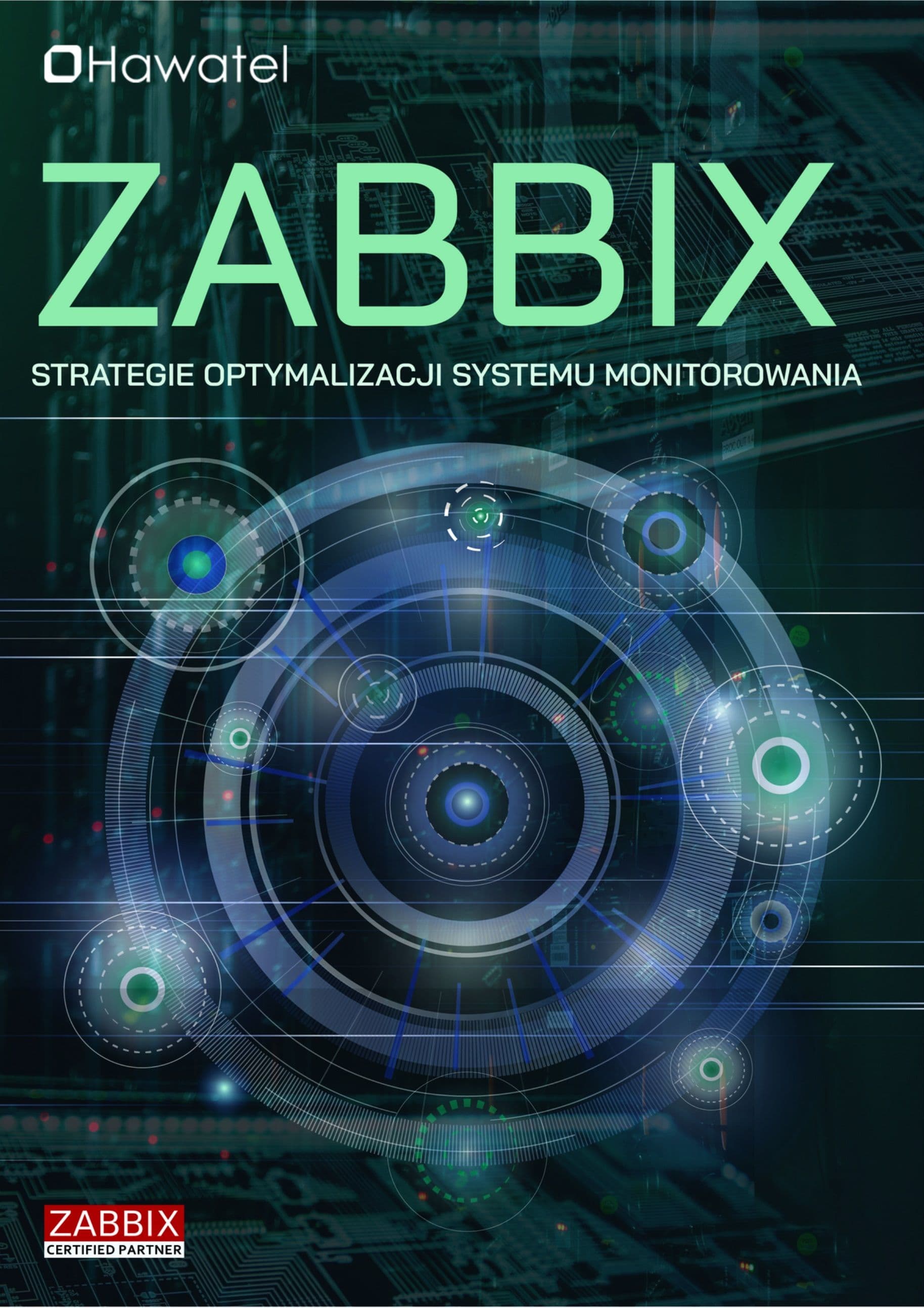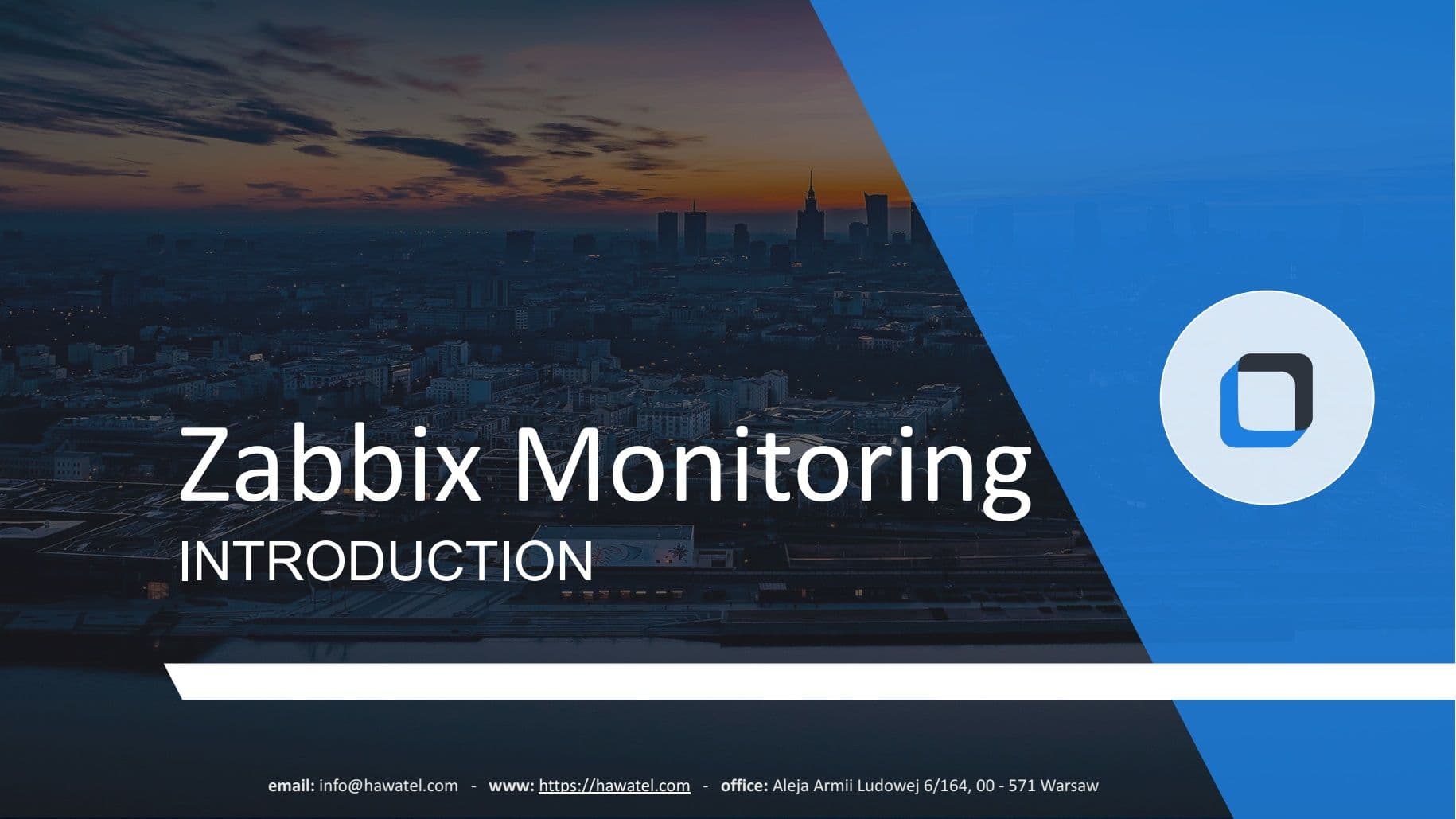Welcome to Hawatel's blog!
August 13, 2025 | General / Infrastructure management / Monitoring / Software
How does Zabbix help with network anomaly detection?
Detecting anomalies within a network is one of the most crucial aspects of maintaining the stability and security of any IT environment. Today’s infrastructures are becoming increasingly distributed, complex, and dynamic, which raises the risk of outages, security vulnerabilities, and unauthorized activities. In such a reality, organizations cannot afford to operate "blindly." They need tools that enable them to quickly identify deviations from the norm and take action before the issue impacts users or business continuity.
One of the most widely used tools for infrastructure monitoring and anomaly detection is Zabbix — a powerful, open-source solution that helps companies monitor networks, servers, applications, and services.

Source: Zabbix
Zabbix — monitoring that goes beyond the basics
Although Zabbix is primarily associated with classic availability and performance monitoring, its capabilities go far beyond simply checking whether a server is responding. In reality, Zabbix is a powerful tool for continuously tracking the state of an IT environment, analyzing behaviors, and detecting irregularities — including subtle anomalies that may be early indicators of more serious problems.
Unlike many reactive solutions, Zabbix allows organizations to work proactively. It detects not only obvious failures but also less visible symptoms such as unusual spikes in network traffic, delays in communication between systems, changes in application behavior, or suspicious user activity patterns.
What exactly are network anomalies and why detect them?
Network anomalies are any deviations from the typical, expected behavior of your infrastructure. They can originate from various sources and do not always indicate an immediate threat, but ignoring them often leads to more serious consequences.
Examples of common anomalies:
- Unusual increase in network connections during off-hours
- Increased communication delays between servers
- Exceeding performance thresholds on network devices or servers
- Sudden spike in errors on network interfaces
- Unexpected CPU, RAM, or disk space usage increases
- Higher number of login attempts from unauthorized IP addresses
- Irregular database or application service queries
Such events can signal a wide range of issues — from configuration errors and system overloads to external attack attempts. That’s why quickly identifying these deviations is key to preventing outages, downtime, or security incidents.

Source: Zabbix
How does Zabbix detect anomalies? Key mechanisms
Real-time monitoring
Zabbix continuously collects data from monitored devices and systems — virtually any infrastructure element, such as routers, switches, servers, applications, cloud services, databases, or operating systems. Data is gathered every few seconds or minutes, allowing for immediate detection of unusual activity.
Triggers and threshold alerts
Administrators can define precise rules within Zabbix to specify when a given behavior is considered abnormal. These can be simple thresholds (e.g., CPU usage above 80%) or more complex conditions based on multiple parameters. When a rule is violated, the system generates an alert and automatically notifies the appropriate personnel.
Trend analysis and historical data
Zabbix stores historical data, enabling long-term trend analysis. Based on this data, deviations can be spotted that may not be immediately obvious but indicate concerning changes in system behavior.
Automatic detection of unusual patterns
Newer versions of Zabbix offer features such as anomaly detection based on time-series data analysis (also known as baseline monitoring). The system learns what constitutes standard behavior for a specific infrastructure and then identifies situations that deviate from that baseline.
Integration with security tools
Zabbix can integrate with other systems such as Wazuh, the ELK Stack, SIEM platforms, or intrusion detection systems (IDS). This enhances monitoring with advanced threat analysis and correlation of data from various sources.
Practical applications of anomaly detection with Zabbix
Anomaly detection with Zabbix is useful in both small networks and large, distributed enterprise environments. Example scenarios include:
- Early detection of DDoS attacks by analyzing sudden spikes in incoming traffic
- Identifying internet link or network device failures through alerts on unusual delays or packet loss
- Rapid response to application server overloads during peak hours
- Application and server security monitoring for unauthorized access or unusual traffic from specific IP addresses
- Stability analysis of virtual or cloud environments, where performance fluctuations may indicate infrastructure problems

Why choose Zabbix?
Zabbix stands out not only due to its advanced capabilities but also its flexibility and scalability. It can be tailored to any environment — from small businesses to global corporate infrastructures.
Additional Zabbix advantages include:
- No licensing costs (open-source)
- Large community and extensive library of ready-made monitoring templates
- Ability to extend with custom scripts, integrations, and automation
- Broad support for on-premises, cloud, and hybrid systems
- Advanced notification and alert escalation mechanisms
Conclusion
Network anomaly detection is not a luxury — it is a necessity in a world where IT infrastructures are increasingly complex and exposed to various threats. Zabbix not only allows for monitoring system availability and performance but also for quickly identifying irregularities that could lead to outages or security incidents.
With flexible alerting mechanisms, trend analysis, and integration with other tools, Zabbix is a reliable ally for administrators and IT teams who want full control over their infrastructure and aim to minimize downtime risks.
If your organization values stability, security, and a proactive approach to monitoring — Zabbix is a solution worth considering.










